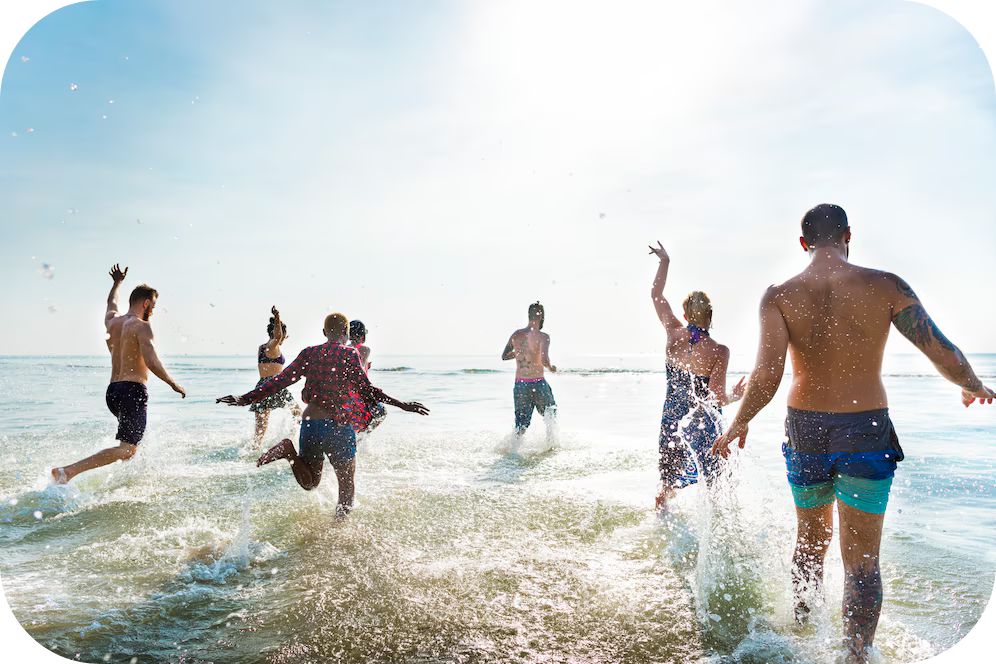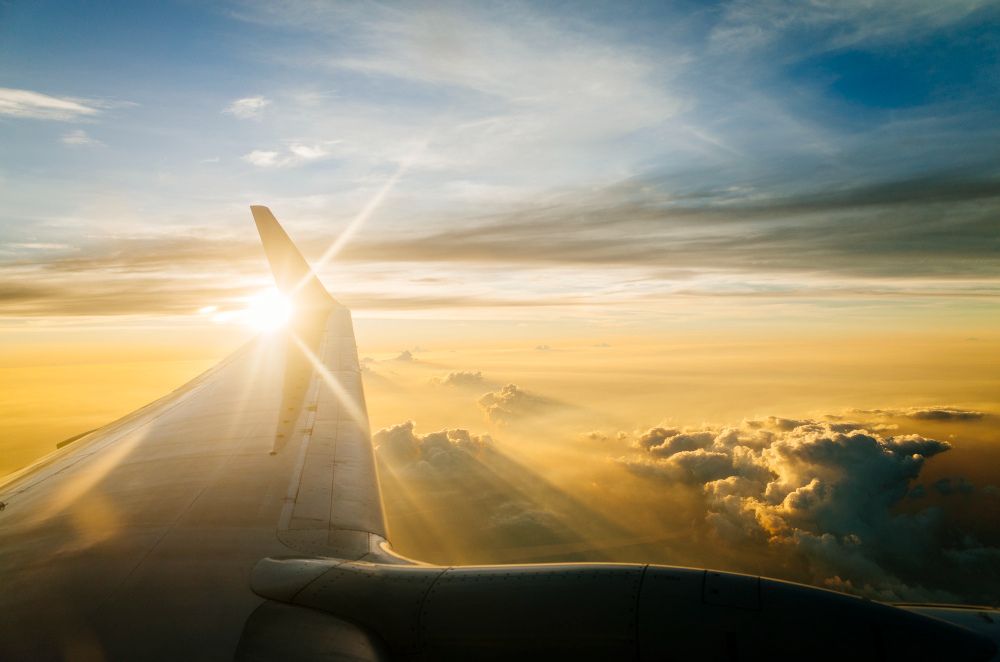
Travel Curiosities About Vacations: Fascinating Facts and Tips
Travel Curiosities about Vacations
Vacations are one of the most anticipated times of the year. They give us the opportunity to disconnect, relax, and explore unknown places. With the arrival of summer, it’s a good time to learn some travel curiosities about vacations that you probably didn’t know.

The Origin of the Word "Vacation"
The word “vacation” has its roots in the Latin vacatio, meaning “cessation of work” or “rest”. During the Roman Empire, public officials were granted a period of rest to replenish their strength and enjoy recreational activities. This concept has evolved over the centuries into what we now know as vacations.

Mass Tourism
At the beginning of the 19th century, tourism began to gain popularity among the upper and middle classes of Europe. Thomas Cook, an English pioneer, revolutionized the way people traveled by organizing the first group train trip in 1841, transporting the 570 members of the Temperance Society from Leicester to Loughborough to attend an anti-alcohol rally. This event marked the beginning of mass tourism and laid the foundation for the modern tourism industry.
Beaches as Tourist Destinations
During the 19th century, beaches began to be seen as popular tourist destinations. Previously, these places were considered dangerous and unattractive. The construction of railways and improved infrastructure made beaches accessible and desirable. The first modern seaside resort was opened in 1863 in Scheveningen, Netherlands, marking the beginning of beach tourism.
Vacation Days in Different Countries
The number of vacation days varies significantly between countries. In Europe, France and Finland offer 30 days of paid vacation by law, while the UK grants 28 days. In contrast, the United States does not have a federal law guaranteeing paid vacation days, although some states like New York and Miami do. In China, workers are entitled to 5 vacation days, and in Mexico, Thailand, and Nigeria, 6 days.

Vacations in Spain
In Spain, the 1931 Labor Contract Law established the right to paid vacations for workers, initially 7 days a year. Currently, vacations in Spain cannot be less than 30 calendar days a year by law.

Space Vacations
Billionaire Dennis Tito was the first space tourist in 2001, traveling to the International Space Station. Companies like SpaceX and Blue Origin are working on projects to take tourists to space, with plans for Moon flights by 2027.
Effects of Flying on the Body
- Blood Oxygen Saturation. Cabin pressure in an airplane is equivalent to being between 1,500 and 2,500 meters in altitude. This can cause a decrease in blood oxygen saturation, which can be unsustainable in the long term.
- Jet Lag. Changing time zones can deregulate circadian rhythms, causing jet lag and insomnia. This can increase stress and alter hormone production and regulation, affecting performance.
- Low Humidity and Dehydration. Air in airplane cabins has very low humidity levels, between 5% and 20%. This can cause dryness and dehydration in the nose, throat, and eyes, as well as increase the likelihood of infections. An Australian study showed that a long-haul flight can dry out the skin by up to 37%.
- Impact on the Brain. Mild hypoxia in airplanes can increase anxiety, depression, and negative emotions. Combined with dehydration, it can alter our mood and ability to cope with stress.
- Effects on Sexual Life and Menstrual Cycle. Factors associated with air travel, such as jet lag and stress, can affect hormonal balance and cause menstrual irregularities. There has also been an increase in research on the impact of travel on sexual well-being, with the sexual wellness industry booming.
Tips to Mitigate the Effects of Flying
To mitigate the negative effects of flying, it is recommended to exercise before and after the flight, stay well-hydrated, avoid alcohol and caffeine, walk a lot during the flight, meditate, and adjust sleep routines before the trip.


Traveling with Music
Listening to music while traveling can improve blood flow in the brain, helping to process and contextualize new information. Music can also influence our mood and biological rhythm, offering an emotional connection to the environment.
The Traveler Gene
A study published in Evolution and Human Behavior suggests that 20% of the population has high levels of DRD4-7r, a dopamine receptor known as the “wanderlust gene.” This gene is associated with curiosity and the desire to explore new places, explaining some people’s overwhelming passion for travel.
Wanderlust is another word used to describe this difficult-to-treat fever. It’s a German term formed from the words ‘wandern’, which means to walk or hike, and ‘lust’, which is synonymous with passion.
There are three key elements to creating new neural connections: exposing our mind to novelty, expanding it with variety, and challenging it. Traveling fulfills all three functions. Simple situations like adapting to a new environment, reading a map, or trying to speak another language make the brain more plastic and creative.
Spain as the Most Visited Country in the World by 2040
A study by Google and Deloitte predicts that Spain will become the most visited country in the world by 2040.
Spain, currently in second place thanks to its family-friendly hotels, magnificent beaches, and unbeatable gastronomic scene, is expected to welcome 110 million tourists per year, followed by France (105 million) and the United States (100 million), according to current data.

The Safest Countries of 2024
Iceland has been considered the safest country in the world since 2008. Spain has improved its position, climbing from 32nd to 23rd place, with data such as a 1 out of 5 in terms of organized conflict and a 1.3 out of 5 in homicides. In this index, the country’s worst numbers are in categories like arms exports (3.2/5), the number of violent crimes (2/5), the percentage of perceived crime by citizens (1.9/5), and the number of people incarcerated relative to the total population (1.9/5).
The ranking of the safest countries in the world in 2024 is:
1. Iceland
2. Ireland
3. Austria
4. New Zealand
5. Singapore
6. Switzerland
7. Portugal
8. Denmark
9. Slovenia
10. Malaysia
Yemen is considered the most dangerous country. It is followed by Sudan, South Sudan, Afghanistan, the Democratic Republic of the Congo, Syria, Mali, Somalia, North Korea, Iraq, the Central African Republic, Burkina Faso, Myanmar, and Nigeria.

Souvenirs That Shouldn't Exist
- Rosewood Instruments. Rosewood is the name given to various species of wood from trees found in the intertropical and subtropical regions of Africa and Asia. Despite protective measures, many ‘patrons’ continue to use it for manufacturing instruments such as guitars, clarinets, and flutes. The illegal trade of this type of wood threatens the existence of a vulnerable species, prompting many authorities to require permits for the sale of these items.
- Shells, Seahorses, and Other Marine Life. The trade of these products can harm marine ecosystems and endanger species.
- Shahtoosh. Shahtoosh is a shawl woven from the fur of the Tibetan antelope, an endangered species found in northern India, China, and Nepal.
- Animal Selfies. Taking selfies with animals can cause them stress and anxiety, in addition to interfering with their natural habitats.
Get up to 20% off when bundling home insurance with other policies

- Snake Wine.
In China, Thailand, or Vietnam, you are likely to come across the typical bottles of orange liquid known as ‘snake wine.’ This ancient Chinese medicine recipe is used as an ointment to heal certain diseases through the reptile’s properties, filtered as an infusion. Snake wine not only involves the sacrifice of various animal species, but it also poses dangers such as the presence of potential toxins in the liquid, or worse, that the snake may not be dead when you take a sip. - Counterfeit Products. Counterfeits reflect inequalities and labor exploitation. Purchasing counterfeit products contributes to these issues.
- Civet Coffee. The civet is a raccoon-like mammal found in various tropical regions of Africa and Asia, associated with the world’s most expensive coffee, ‘kopi luwak,’ typical of Indonesia. Civet coffee is produced from beans digested and excreted by civets. This process can be cruel and harmful to the animal.
- “Popcorn” of Fuerteventura. Removing natural elements from their environment contributes to the erosion of ecosystems. A notable example is the famous ‘popcorn’ or rodolites, calcareous algae that make up the fantastical beach of Bajo de la Burra in Fuerteventura.
Lost Objects on Vacation
According to a recent study conducted by Jetcost, the items most commonly lost by Spanish travelers during summer vacations are clothing (68%), followed by technology (62%), toys (57%), glasses (42%), bags, backpacks, and wallets (37%), and books (30%).
But it’s not just objects that go missing. Twenty percent of respondents reported losing one of their children during their vacation, albeit for a short period. The most common places to lose children are at the beach, in the pool, in a shopping center, in a theme park, or at the hotel where they were staying. The average duration of a child’s disappearance is a mere 5 minutes.
The Most Curious Hotels in the World
- Ice Hotel in Sweden. Built entirely of ice and snow, it is reconstructed every year.
- Montaña Mágica Lodge in Chile. A hotel shaped like a volcano that “erupts” water.
- Hotel Costa Verde in Costa Rica. A Boeing 727 converted into a hotel.

Key Features to Look for in Travel Insurance
- Comprehensive Medical Coverage. Ensure the policy covers medical expenses, hospitalization, emergency evacuation, and repatriation.
- Trip Cancellation and Interruption. Coverage for non-refundable expenses if your trip is canceled or interrupted due to unforeseen circumstances.
- Personal Belongings. Protection against loss, theft, or damage to your personal items, including luggage and travel documents.
- 24/7 Assistance. Access to round-the-clock assistance for emergencies and support during your travels.
Get Expert Advice and the Best Quotes
To find the most affordable and comprehensive travel insurance tailored for expats in Spain and travelers, consult with a professional insurance advisor. United Expat Insurance can guide you through the process, compare quotes, and help you secure the best coverage at the right price.





